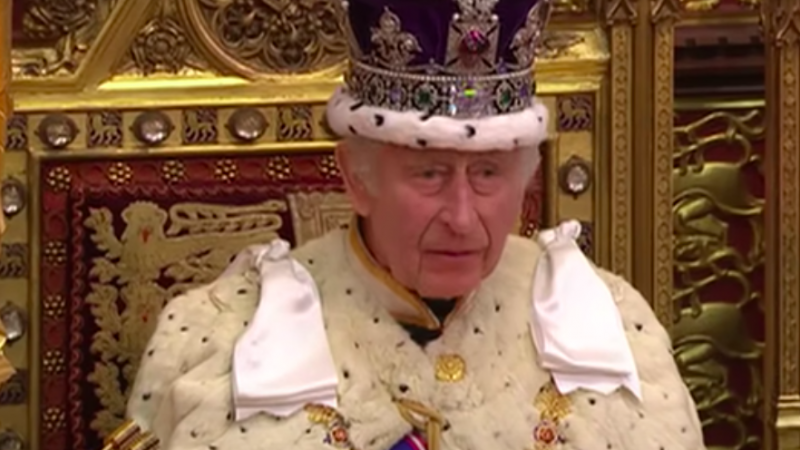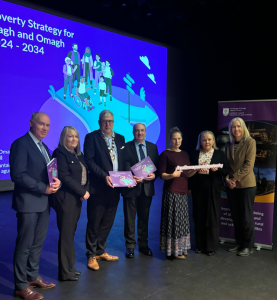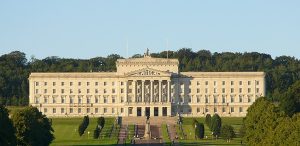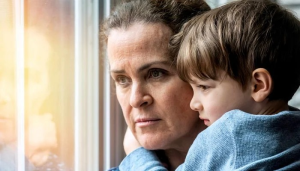Reactions to the King’s Speech: Where was the focus on poverty?
22 July 2024
By Becca Bor
Last week the Labour Government laid out their legislative priorities in the King’s Speech. There were some important commitments that will help address the root causes of poverty – such as employment rights, protection for renters – and the impacts of poverty – a focus on child wellbeing and mental health.
However, the reality of growing poverty itself and plans to tackle it was absent from the key governmental priorities. The King’s Speech could have been an opportunity for the Labour Government to send a clear message that they are willing to make ambitious policy changes that would immediately lift hundreds of thousands of people across the UK out of poverty.
There was hope that the government would focus on child poverty by scrapping the 2-child limit to the child element of universal credit. In fact, there was hope that there would be some reforms laid out to reverse the impoverishment that those reliant on social security have faced over the past decade. For example, the government could implement a baseline for social security so that people reliant on benefits are not driven into poverty and destitution.
In a country as wealthy as the UK, the Labour Government’s plan needs to be more ambitious to raise taxation on wealthy individuals and corporations in order to pay for the public services and infrastructure our society depends upon.
Here are some of the responses to the King’s Speech from organisations who want to see the eradication of poverty at the centre of public policy.
Abby Jitendra, JRF Principal Policy Adviser Joseph Rowntree Foundation, laid out her response to the King’s Speech:
“What’s clear from this legislative programme is that ministers understand they need to pull more than one lever to address poverty, which is the right approach. There is lots of ambition to address some of the leading drivers of poverty…. However, the critical missing piece is reforming social security so we all have a safety net to rely upon.”
The following Op-Ed in The House magazine by Sir Peter Wanless on behalf of the Children Charities Coalition of UK-wide organisations – Action for Children, Barnardo’s, National Children’s Bureau, NSPCC, The Children’s Society – that welcomed elements of Labour’s plan but highlight the shortcomings for tackling child poverty.
“It’s welcome that, despite no mention of poverty in the King’s Speech, the Labour government has since announced it will set up a ministerial taskforce to deliver the strategy [Child Wellness Bill] promised in its manifesto… This cannot come quickly enough. Urgent action is needed to tackle a crisis affecting children and families up and down the UK … The Government has prioritised children’s wellbeing throughout its upcoming legislation but have not gone far enough yet to address how child poverty affects every element of a child’s life …
The Government may have missed an opportunity in the King’s Speech but with the new ministerial taskforce, there is still time to be ambitious in ensuring that all future generations are healthy, happy and safe by putting in place the building blocks that will eradicate child poverty.”
Sumi Rabindrakumar, Head of Policy and Research, at The Trussell Trust responded to the King’s Speech by reiterating the need for public policies that eliminate the need for emergency food. They highlighted the strengthening of workers’ rights and renters’ rights, but emphasised the need for immediate intervention to address poverty.
“Finally, we know the biggest and most immediate driver of hunger and hardship that food banks see is our social security system. From the UK Government’s manifesto, it was clear this wasn’t on the agenda for immediate legislative change. But the UK Government has pledged to end the need for emergency food. This must involve improvements to make our social security system fit for the 21st century, and ensure it fulfils its most basic function in ensuring we can at least afford the essentials.
Most importantly, we know change is needed now. While it may not have been for the King’s Speech, the UK Government’s first Budget is a time for urgent action to protect people’s incomes. At the last count, the Trussell Trust’s community of food banks provided 3.1 million food parcels across the UK in a single year. The Household Support Fund, which helps councils provide local crisis support ends in September. Winter awaits. Meanwhile, the public expect change and are likely to grow weary of announcements that feel remote from their daily lives.
We know there are fiscal constraints. But there are relatively low-cost steps that would make a real difference to people’s lives and ease the burden on our other creaking public services like health and education. Extending the Household Support Fund, blunting the impact of deductions from benefits and the benefit cap through a protected minimum floor in Universal Credit, and extending financial support for private renters are three simple, targeted and effective measures to help people keep their head above water.”
Emily Holzhausen CBE, Director of Policy and Public Affairs at Carers UK had a similar response – welcoming Employment Rights, particularly around flexible working and disability rights, but highlighting that policies need to focus on lifting unpaid carers out of poverty.
“We welcome the introduction of the Employment Rights Bill and provisions for workers. There are just under 2.5 million unpaid carers in the country today who are juggling work and caring for an ill, elderly or disabled relative. A shocking 600 unpaid carers leave employment every day and these provisions will go some way to help unpaid carers remain in work and strengthen the Government’s economic growth agenda.
We commend the planned provisions around flexible working and also want to see a swift review looking at the benefits of paid Carer’s Leave, paving the way for this to be included in the Employment Rights Bill. These combined measures would make a significant different to unpaid carers’ lives.”
Peter Kelly, chief executive of the Poverty Alliance in Scotland, had this to say about the King’s Speech:
People in Scotland and across the UK believe in justice and compassion. They don’t want to live in a country where a fifth of our households live in poverty, including 2.6 million children. They can see how food insecurity, deprivation, low pay, insecure work, and lack of investment in our public services are damaging their communities.
The new Government’s first Kings Speech was an opportunity for it to set out a new path on poverty. After years of policies that have failed to stem the rising tide of poverty across the UK, we expected to hear more on the early actions the new Government would take to begin to turn that rising tide. Many of the Bills announced today are welcomed – strengthening workers’ rights, in particular – but poverty was missing from the speech today.
That absence will mean millions across the UK will still face the same policies and rules that have kept them in poverty under the last government – the five week wait for benefits, the benefit cap, the two-child limit. We have known for years about the deeply damaging impact that these policies have, now is the time to change them.
People want a strong, secure, and stable society that gives people a foundation to build lives beyond poverty. It is what they expect from the new Labour Government. It’s what the Poverty Alliance expects too, and we will continue to make the case for the necessary action to be taken as soon as possible.








